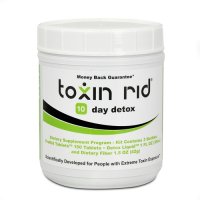How to do a Job Search
download this page (pdf: 75K | doc: 111K | doc: en español)
How to do a Job Search
Whether your transition to your first job takes place during high school, after high school, for the summer, or during or after college, finding a good job may not be that simple and easy. It takes a lot of planning and organizing to get the job you want.
Most job seekers experience some sort of challenge or anxiety when it comes to finding a job. People with disabilities may experience the same frustrations and other feelings when looking for a job. This sheet will give you ideas on how to get a job, where to go to find a job, and how to use the internet to help you.
It used to be that you could only find a job by looking in the newspaper or hearing about an opening from a friend. These days there are many ways to seek a job. Many large companies and even some small businesses have a human resources department (a group of people at the business who are responsible for hiring people and figuring out employee benefits) that can give you a list of job openings currently available or coming soon. You can do a search on the internet or post your resume (a sheet of paper that lists out past jobs, your education level, volunteer experiences or the skills you have) for employers to search out you. Keep in mind that the company that you might have interest in working for may have an application on their website. Check it out!
Internet Resources
Here is a list of websites to help you get started in your job search.
These are websites that list jobs all over the country.
- http://www.monster.com
- http://www.jobpostings.net
- http://www.libraryjobpostings.org
- http://www.employmentguide.com
- http://member.hotjobs.com/postjobs
For high school and college youth looking for jobs, see:
For information about employment, check out:
- Youth@Work, the United States Equal Employment Opportunity Commission, http://youth.eeoc.gov/index.html
- National Center on Secondary Education and Transition, http://www.ncset.org/default.asp
- National Collaborative Workforce Disability/Youth, http://www.ncwd-youth.info
Community Resources
If you do not have your own computer, there is no need to worry. You can do job search at school or at a local library. There might also be an organization nearby that will allow you to use their computer. Call your local Center for Independent Living for more information. To locate the one closest to you, go to www.ilru.org. Many Centers offer a consumer work station which includes internet access, phone and fax machine.
Several states around the country now have local Career Centers or One-Stop Centers. These agencies can give you one-on-one assistance. Many of them offer free or low-cost computer refresher classes to teach you basic ways to use a computer and have a variety of job listings posted in the office. You can find your local One-Stop Center by going to http://www.servicelocator.org. You can type in your zip code, city and state to find the closest one to you.
If you are at college or are planning to attend, check out your on-campus Career Services Office. The office is not only full of information but also has helpful staff that can help you create a resume, a cover letter (a cover letter explains to an employer why you want a certain job and why you would be good at it), or prepare you for an interview. Friends, family and teachers can also help you with a resume and cover letter. Have as many people as you can look it over and give you advice. Some Career Services Offices offer on-campus recruiting or put on job fairs for students. Find out if your Center offers career counseling, testing, or academic planning workshops.
Whether you’re currently attending school or just want help in finding a job that is right for you, check your local phone book for the Vocational Rehabilitation (“Voc Rehab”) office nearest you. Look under the heading “State Government.” Voc Rehab will be listed under Education, Labor, or the Human Resources department. The job of Voc Rehab is to help you get the skills and items you need to get a job. For some young people that means they can help with paying for tuition and books for college. For other people Voc Rehab may be able to help you find and buy the technology you need to be able to work. They also sometimes know of programs to help people with disabilities get job experience.
Accommodations
People with disabilities sometimes find it challenging to find or get a job because they do not know what is available to them to help them do the tasks of a job. If you require assistance or need to ask questions about how to make your future job accessible, you may want to contact the Job Accommodation Network, JAN, http://www.janwvu.edu. If you are not sure what it will take to get a job or how to keep the job after you get it, you may want to contact the Americans with Disabilities Act Technical Assistance Center, http://www.adata.org.
It can be challenging for anyone to find a job. For people with disabilities it can be even more so because employers may not have the experience of working with a disabled person. Keep in mind that you might be the first person with a disability to ever interview with your future boss. Don’t give up. Lots of people with disabilities get jobs that they want and like.
Some other tips when looking for a job:
- Figure out what you do well and what you would like to learn more about. Then look for jobs in those areas.
- Sometimes volunteering at a place you are interested in working can help show people what you can do and that you can do it well. Then you can apply for a job there and have a higher chance of getting it because people know you.
- Volunteering in general can be helpful for resumes. Many times employers will count volunteer experience like work experience. Volunteering can be fun and can help you develop some good skills, experience and references (people who can tell others how talented you are).
- Get an internship with a local organization that can help you gain additional skills.




Leave a Reply